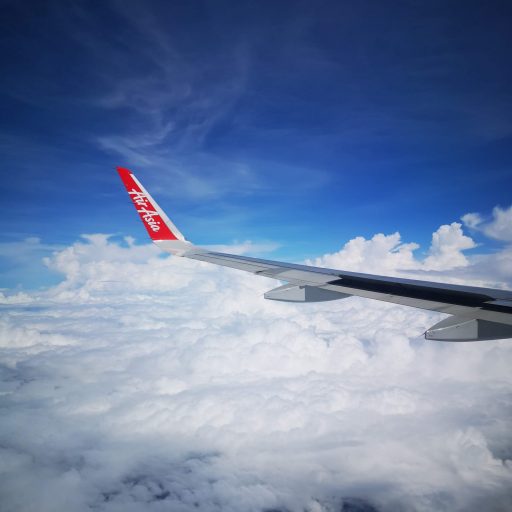
The Event
The Sustainable Skies World Summit returned to exhibit and support the industry’s endeavours to achieve its net zero commitment. This endeavour has been further reinforced by world governments adopting an ambitious net zero goal for aviation during the ICAO Assembly in October. Organized by Farnborough International (FAB- by code and by description!) and the Sustainable Aviation Coalition, the global summit took place on April 17-18, 2023. It showcased the latest advancements in sustainable aviation technology and provided a platform to discuss how the industry can transition from setting goals to implementing net zero strategies. Additionally, the event brought attention to opportunities for the next generation of engineers and young people who will play a critical role in making jet zero a reality while addressing the challenges posed by the future workforce. I was lucky enough to attend this event as a volunteer with https://airleague.co.uk/ along with other volunteers and members of staff.
What really stood out to me was the passion and commitment of the aviation industry to solving the environmental challenges we face, and will continue to face even more greatly in decades to come. This drive to rise to any challenge we face, to achieve the impossible by working together (and with some healthy competition along the way), to inspire others and share our determination with the world is something I am continuously inspired by. Aviation is like no other industry, and those committed to its improvement will always be my heroes. This Summit was a perfect representation of the industry’s efforts to decarbonise and “clean up” aviation and show why we ought to continue supporting aviation.
Sustainable Aviation- an oxymoron?
In recent years, environmental protesters have often targeted airlines and airports and painted them as a carefree bunch of fuel guzzlers who have no regard to the environment. In my opinion, this could not be further from the truth (for commercial aviation at least). Fuel costs make up roughly one third of an airlines costs and with airlines having notoriously thin profit margins, it does not make sense to assume these companies are unconcerned with fuel burn. Airlines are continuously working towards minimising fuel usage with newer and more efficient jets, improved air traffic management and airspace modernisation to reduce taxi and wait times for take-offs and landings and to make use of faster routes between airports.
That being said, I do understand the environmentalist argument. It is difficult to understand why individuals are being encouraged to drive less and reduce their carbon emissions, when there are massive jets burning 70 litres of fuel a minute. The truth is that there is no simple answer. Aviation has huge benefits for individuals and nations across the globe and most of us love the opportunities that can only be afforded by flight. Airplanes are here to stay. The challenge is how to maintain this industry while reducing its carbon footprint.

Nobody is claiming aviation is good for the environment- to do so would be ridiculous. What I do believe is fair to say is that the aviation industry is ready for the challenge and is fully committed to fighting their carbon emissions while growing demand and keeping prices affordable. In the midst of the environmental argument, I think it is important to resist the temptation to simply suggest hiking prices to insane numbers to reduce demand- and therefore only allow the rich to enjoy the benefits of world travel.
New Technologies
The Summit focused on five main areas:
1. Sustainable Aviation Fuel (SAF), in
particular SAF made from household and industrial waste (rather than
agricultural sources). News was released at the Summit also that Virgin Atlantic are due to fly the worlds first 100% SAF flight from London to New York later this year.
2. Carbon Removal, including direct air capture.
3. Future of Flight or Advanced Air Mobility, using electric drone technology for deliveries.

4. Zero Emission Aircraft (hydrogen fuel cells, electric planes, solar and hybrid solutions to traditional aircraft). Although these technologies exist and have been trialled on the ground, we are still at least 10 years away from seeing them in commercial use. It takes a long time for new aviation technologies to go through the all the regulation hurdles and be approved air worthy. This is a good thing, we do not want untested and uncontrolled technologies in the skies. Until this point, we will need to find other ways to reduce emissions.



5. Operational Efficiency, focused on how airports and air traffic management can play a role in improving flight efficiency and lowering fuel burn. This is perhaps one of the more realistic solutions which can be implemented in upcoming years without the need for brand new technology. Finding new routes between airports which reduce fuel burn and delays, reducing the impact of headwinds and decreasing the volume of aircraft having to stay in holding patterns around busy airports will all contribute to lower emissions.
Next Year?
This years summit was already much more popular than lasts, with hopes that the Summit in 2024 will attract even more innovations, speakers and avgeeks through the doors.

You really make it seem really easy with your presentation but I in finding this matter to be actually something that I believe I might never understand. It kind of feels too complex and extremely broad for me. I’m looking forward to your next publish, I will try to get the hang of it!
Hi, thanks for the comment! Sustainable aviation is definitely a very complex topic and I hope to post more about it in the future. Thanks for the support 🙂
Very efficiently written story. It will be useful to anybody who usess it, as well as myself. Keep up the good work – for sure i will check out more posts.
Hi there, You’ve done an incredible job. I will certainly digg it and personally recommend to my friends. I am sure they’ll be benefited from this website.